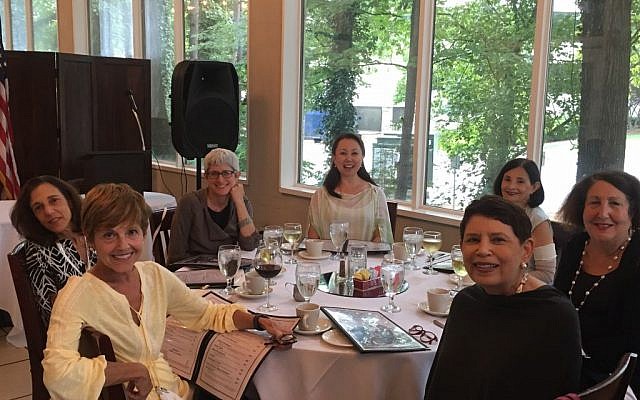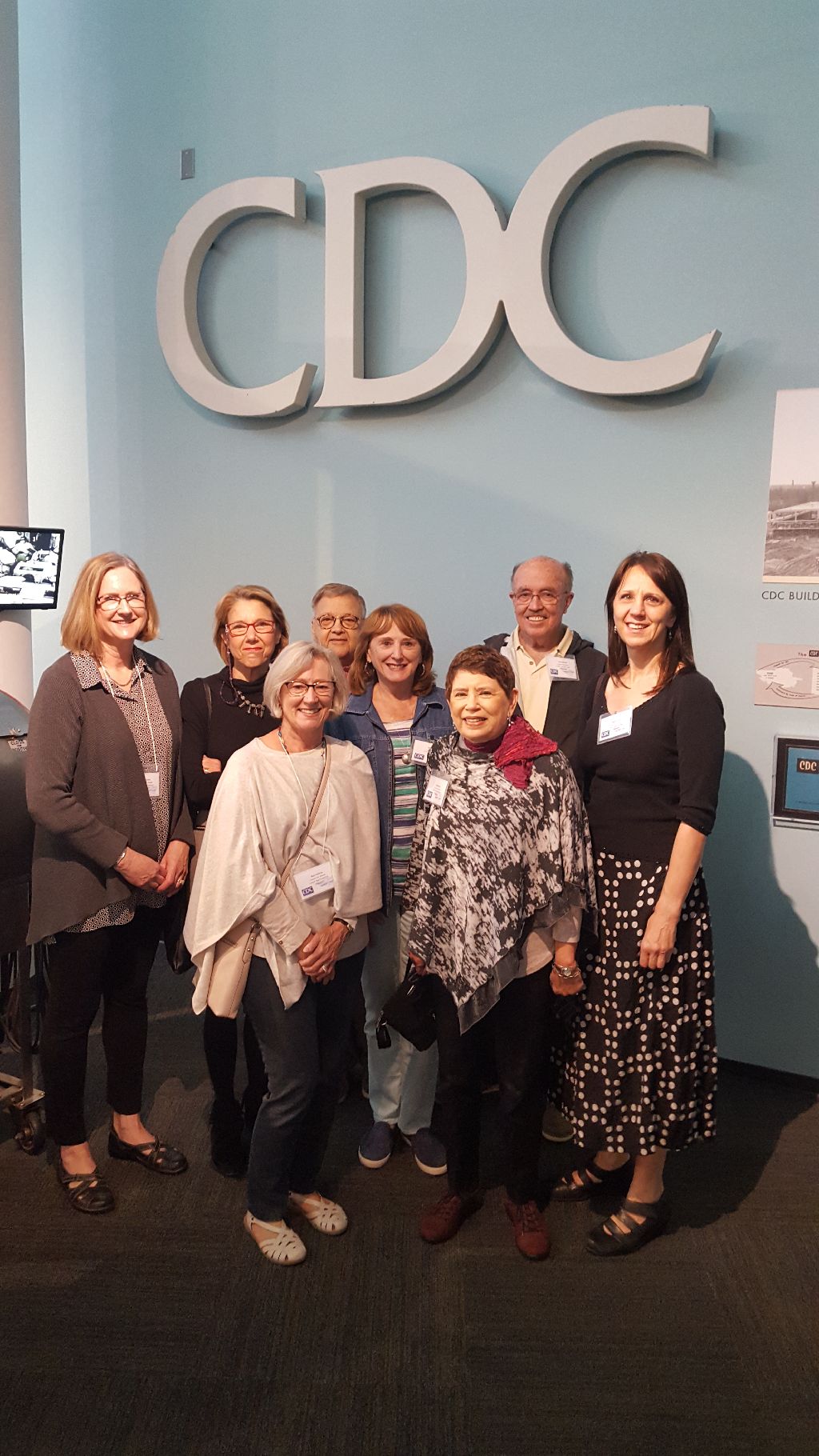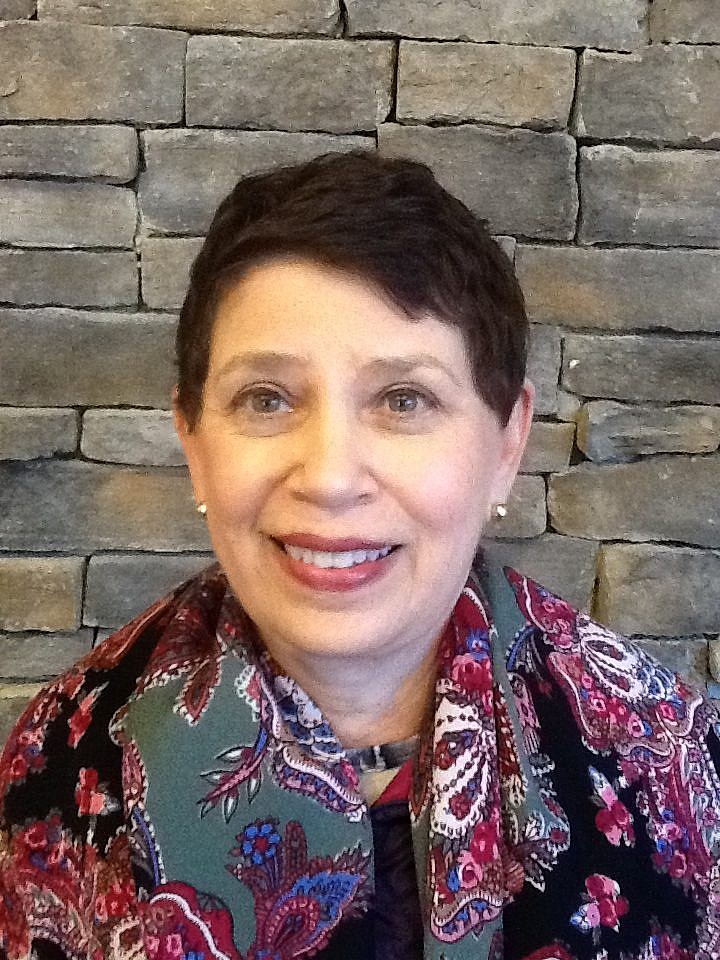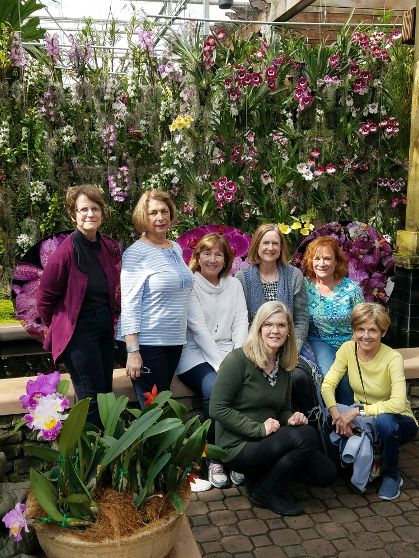Navigating Middle-Age Transitions
Women 50 and older can turn to a social support group such as The Transition Network, when moving into retirement or otherwise going through a change in their life.

No longer needed, an alarm clock gets packed away, maybe given to a local nonprofit thrift shop. You wake up to retirement or to a life transition in what could be considered a new “gift of time.” Perhaps newly divorced or becoming an empty nester whose daily familiar routines may no longer exist, where mornings that turn into evenings far too quickly seem emptier.
That’s when women 50 and older might turn to a social support group such as The Transition Network, a nonsectarian and nonprofit national women’s organization.
Rhoda Margolis, TTN Atlanta chapter’s founder, said that “A large part of my 35-year career at Jewish Family & Career Services was defined by creating community. Now I have a wonderful new community of interesting women with whom I can dine, discuss books, see movies, play mahjong, explore Atlanta, attend lectures and panel discussions, and above all, become a member of a peer support group. This is an opportunity for me to talk about transitions in my life and be part of that all-important supportive social network.”
Small peer groups of women, usually no more than 12, who live near each other geographically, meet in private homes with potluck suppers and engage in lively, intimate discussions.
At the Decatur/Virginia Highlands peer group of Roberta Grant, discussion topics included: “What’s on your bucket list?” and “How do you feel about the friends you’ve made, kept and lost over the years?” TTN also offers special interest groups, such as the Out and About SIG. Members are encouraged to start new groups if a particular interest isn’t represented.

“Work, especially in a profession you love, provides much more than a paycheck,” Margolis said. “There is a sense of purpose, a work family, structure and new challenges. As I thought about retirement, I knew I needed to find these things somehow outside my world of work. But how?” she wondered.
“Additionally, anything you read about healthy aging stresses the importance of strong social connections, meaningful activities, opportunities for new learning, etc. When I found TTN, which was by lucky chance, I realized that others felt the same way. This was a revelation as I had been feeling very alone, worried about a void. Working to start an Atlanta chapter also gave me the wonderful gift of meeting women from a host of other professions, with whom I never would otherwise have crossed paths.”
Many of the members happen to be Jewish, Margolis said. “I loved having a career in the Jewish community. Now I also treasure each day of my retirement.”

Laura Greenberg retired at 65 after being a social worker for the Gwinnett County Public Schools, where she worked for 36 years.
At first she thought of working part-time, but decided instead “to retire on my terms.” While taking a class at the Osher Lifelong Learning Institute at Emory University, geared for “seasoned adults who enjoy learning for fun,” she met Margolis.
Through TTN, Greenberg shared similar life changes with others from active professional careers. Instead of days jam-packed with appointments, meetings and assessment evaluations, Greenberg attended films, discussed the latest TED Talk podcast and tried an ethnic restaurant with new friends.
Gail Collier-Glover’s retirement from an information technology career, which included 20 years with the state of Georgia and a layoff from IBM, left her feeling “very disconnected.”
Her Google search of “women over 50 networking” found TTN. Glover is now involved not only with peer groups and SIG, but she uses her IT expertise in marketing and communication for TTN. She attends events, takes photos, writes newsletter articles, and keeps the Facebook and TTN websites up to date.

Retired after 30 years as a dental hygienist in 2002, Grant developed a second career as a certified residential interior designer working with high-end furniture sales. She retired again in 2018, going through both a transition in career and personal life after her divorce. “I always had a schedule, planned time, and a purpose, but it had ended.” After reading an Atlanta Journal Constitution article last year about TTN, she joined. Her “aha” moment came when she attended a workshop on feng shui, the Chinese practice of inspiring positive energy flow through the arrangement of living and working spaces. Re-creating herself, Grant now conducts feng shui workshops part-time.
Whether in small peer or special interest groups, women in TTN often find the group fills a void, offering opportunities for learning and allowing them to develop long-lasting friendships.
To learn more about TTN Atlanta chapter, contact atlantachapter@thetransitionnetwork.org.



comments